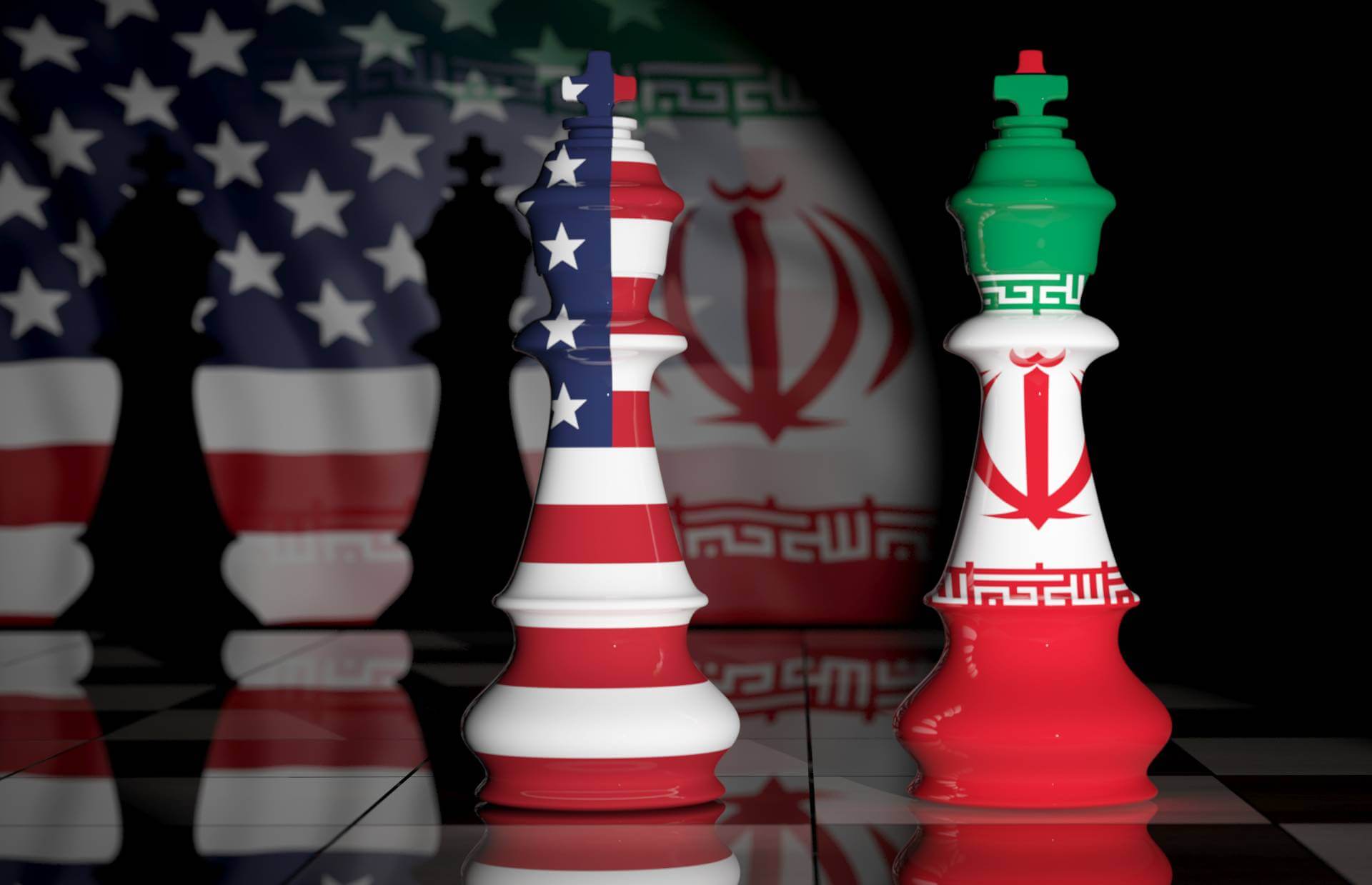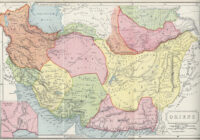The media’s relationship with the US government significantly shapes public perceptions of international events, particularly regarding Iran. Concerns about the objectivity of information rise due to the media’s tendency to amplify the government’s narrative. This amplification is achieved through sophisticated content disseminated across various platforms, from television and radio to press releases, online platforms and mobile devices.
This content fosters an insatiable demand for information, yet the desire for unbiased perspectives often faces a significant obstacle. Much of the readily available alternative content online merely recycles the dominant narratives established by the mainstream media, highlighting the media’s substantial influence on public discourse and the challenge of readily accessing diverse and objective viewpoints.
In relation to Iran, the media has consistently adhered to a particular narrative. It has neglected to critically examine US claims, choosing instead to echo US propaganda. This has resulted in Iran being depicted as a pariah state, ruled by a dictatorship and involved in supporting terrorism. These portrayals are often accepted without the necessary critical scrutiny.
Nonetheless, a discernible shift is occurring. A growing number of Americans are becoming aware of the interconnectedness of their government and media, recognizing the presence of biases and the influence of powerful entities, often linked to the so-called “deep state.” This newfound consciousness was evident in a recent interview in which Russian President Vladimir Putin, speaking with Tucker Carlson, described the US “deep state” as the American ‘elite’ with the power to overrule the US president and dictate the country’s policies.
Déjà Vu in the Middle East: is the US destined to repeat history?
The January 3 terrorist attacks in Kerman, Iran, targeting a gathering at the burial site of Qasem Soleimani, resulted in a significant loss of life (84 reported dead) and injuries (284). This tragedy raises the specter of another potential conflict in the Middle East, with concerns escalating about Iran’s potential retaliation against Israel, given the Islamic State’s claim of responsibility and the possibility of Israeli involvement.
As a staunch ally of Israel, the United States faces a delicate decision. Historically, US involvement in wars has often resulted in widespread casualties and destruction. Examining interventions in Afghanistan, Iraq, Syria and Vietnam reveals a pattern of initial engagement followed by gradual withdrawal due to unforeseen challenges, potentially eroding US global credibility.
Furthermore, concerns exist regarding the dissemination of misinformation by the US government and media. The echo chamber effect, where media narratives align with government pronouncements, is particularly concerning. Historical examples, such as the Vietnam War, highlight the devastating consequences of such deceit, costing over 3 million lives, including approximately 60,000 Americans. The media’s complacency in events like the Cambodian Genocide and the Iraq War, where questioning of US actions often lagged behind public opposition, further underscores its role in facilitating government actions.
The post-9/11 invasion of Afghanistan aimed to remove the Taliban, resulting in substantial casualties and destruction. However, the Taliban’s return to power after a staggering financial and human cost exposes the futility of such interventions. Similarly, the Iraq War, based on false claims of weapons of mass destruction and connections with al-Qaeda, resulted in hundreds of thousands of Iraqi deaths and immense financial expenditure. The lack of accountability for those responsible, such as US President George W. Bush and his administration, remains a troubling aspect.
Iraq is not alone in bearing the brunt of US intervention. Lebanon, Libya, Somalia, Sudan, Syria and Yemen have all witnessed the repercussions of US involvement in various conflicts. The instigation of regime changes and interventions in democratic governments, exemplified by the overthrowals of Mohammad Mosaddeq in Iran and Salvadore Allende in Chile, have proven to be costly and destabilizing endeavors.
The global cost of war, two decades after the US invasion of Afghanistan, has reached an estimated $8 trillion, with approximately one million lives lost. This contributes to heightened anxiety and poverty, particularly among Americans.
In the case of Israel, media support predates the nation’s inception, marked by the Nakba and associated violence. The media’s historical alignment with the US and its recent support for Israeli actions, resulting in nearly 30,000 Palestinian casualties, raises ethical questions. The International Court of Justice (ICJ)’s examination of South Africa v. Israel has globally exposed the potential crime of genocide in Gaza, implicating Western powers, especially the US. The ICJ’s preliminary ruling, acknowledging Israel’s actions as potentially falling under the Genocide Convention, places a moral imperative on the US and its media to critically examine their positions and align with international standards.
Related Reading
A historical paradigm of misrepresentation
Since the 1979 Iranian Revolution, a recurring motif in US foreign policy has been an inclination towards conflict with Iran. This approach has been driven by a narrative, often amplified by media portrayals, depicting Iran as on the precipice of acquiring nuclear weapons, harboring terrorists and colluding with al-Qaeda. However, this narrative stands in stark contrast to demonstrable evidence: Iran has actively participated in combating terrorism, as evidenced by its crucial role in defeating ISIS in Iraq. Furthermore, while the US and media often label Iran as an authoritarian regime under the Mullahs, a closer examination reveals a system remarkably similar to the US itself and one that actively promotes regional democracy.
While historical timelines do diverge, with Iran’s civilization boasting a legacy exceeding 2,500 years, compared to the US’s 250 years, their differences cannot justify misconstruing realities. Notably, the US has historically engaged in acts of aggression against numerous nations, with the oppression of Native Americans serving as a stark example. Further, the US, alongside Britain and Russia, has participated in suppressing Iranian aspirations for over a century, exemplified by the recently imposed draconian sanctions.
In stark contrast to US backing Arab authoritarian monarchies, Iran’s foreign policy demonstrably favors alignment with the downtrodden. This principle, enshrined in Article 154 of its constitution, directly guides its active support for oppressed nations like Iraq and Syria in their fight against terrorism. While the US actively backs Israel, whose treatment of Palestinians remains a concern, Iran stands firmly in support of the oppressed Palestinian people. Notably, Iran recognizes Hamas as legitimate and raises concerns regarding Israel’s disproportionate retaliatory measures, not only in response to the October 7 incident but also in previous instances.
On the critical issue of weapons of mass destruction (WMDs), while significant global powers, led by the US, maintain stockpiles of chemical, biological, radiological and nuclear weapons, Iran adheres to a demonstrably higher moral ground. It explicitly prohibits the production of WMDs, citing their indiscriminate and unacceptable impact on human life. Iran’s commitment to this ethical principle is further underlined by its restraint from utilizing chemical weapons in retaliation against Iraqi forces during the 1980–88 Iran–Iraq War, despite facing the deployment of such weapons.
The October 7 Hamas attack on Israeli citizens incited a response from Israel. The US-backed Israeli state, which a UN human rights expert accused of apartheid policies, has waged a war that has resulted in significant casualties, predominantly among Palestinians. While the US and mainstream media have focused on the objective of neutralizing Hamas, concerns regarding civilian casualties and potential human rights violations have received less attention, potentially reflecting Western biases.
Furthermore, media narratives align with the US in attributing the Hamas attack to Iranian training, a claim Iran acknowledges but does not explicitly endorse as pre-planned. This framing could serve to strategically prepare the public for potential US involvement in a broader conflict with Iran. It potentially diverts attention away from concerns regarding Israeli actions in Gaza.
In support of Israel, media reports often cite a statement by an Iranian Revolutionary Guard official linking the October 7 attack to the assassination of Qasem Soleimani. This suggests a potential retaliatory motive, but the extent of Iranian involvement remains unclear.
A new approach to US–Iran relations
The current state of US–Iran relations is characterized by a pervasive climate of mistrust and hostility. This atmosphere, shaped by governmental pronouncements and media narratives, has instilled profound anxieties and insecurities within the American public. To ensure a more stable and equitable global order, a paradigm shift is required. This necessitates a concerted effort from both the US government and its media apparatus to engage in open and transparent communication with the American people.
Firstly, there is a pressing need for the US to abandon its reliance on demonizing narratives directed towards Iran. The persistent rhetoric of regime change has demonstrably yielded counterproductive outcomes, furthering tensions and fostering animosity. Instead, the US should consider pursuing a diplomatic approach based on mutual respect and understanding.
Some analysts argue that Iran is currently the most influential power in the Middle East. Recognizing Iran’s regional influence presents an opportunity for the US to engage in strategic collaboration. A crucial step in this process involves acknowledging and apologizing for the 1953 coup, an event that undeniably shaped the trajectory of US–Iran relations.
A promising avenue for diplomatic progress lies in recognizing and endorsing Iran’s stated opposition to Weapons of Mass Destruction (WMDs). Collaborative efforts with other WMD-possessing nations, focusing on nuclear disarmament and non-proliferation, could prove highly beneficial.
Transitioning from belligerent postures to collaborative frameworks is essential for safeguarding US interests. Exploring possibilities for peaceful partnerships with other nations, potentially aligning with Iran on issues of global concern, offers a more sustainable path forward.
However, this transformation cannot be achieved solely by governmental actions. The active participation of the American public is crucial. This necessitates the cultivation of critical thinking skills, demands for transparency from governmental institutions and selective engagement with media sources. By doing so, American citizens can empower themselves to shape a narrative that prioritizes justice, collaboration and global well-being.
[Ali Omar Forozish edited this piece.]
The views expressed in this article are the author’s own and do not necessarily reflect Fair Observer’s editorial policy.
Support Fair Observer
We rely on your support for our independence, diversity and quality.
For more than 10 years, Fair Observer has been free, fair and independent. No billionaire owns us, no advertisers control us. We are a reader-supported nonprofit. Unlike many other publications, we keep our content free for readers regardless of where they live or whether they can afford to pay. We have no paywalls and no ads.
In the post-truth era of fake news, echo chambers and filter bubbles, we publish a plurality of perspectives from around the world. Anyone can publish with us, but everyone goes through a rigorous editorial process. So, you get fact-checked, well-reasoned content instead of noise.
We publish 2,500+ voices from 90+ countries. We also conduct education and training programs
on subjects ranging from digital media and journalism to writing and critical thinking. This
doesn’t come cheap. Servers, editors, trainers and web developers cost
money.
Please consider supporting us on a regular basis as a recurring donor or a
sustaining member.
Will you support FO’s journalism?
We rely on your support for our independence, diversity and quality.










Comment